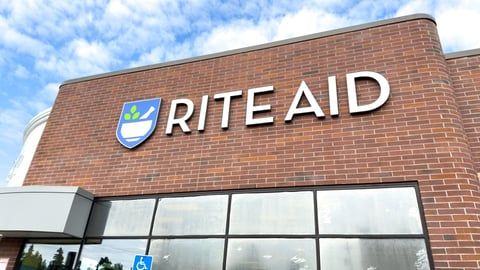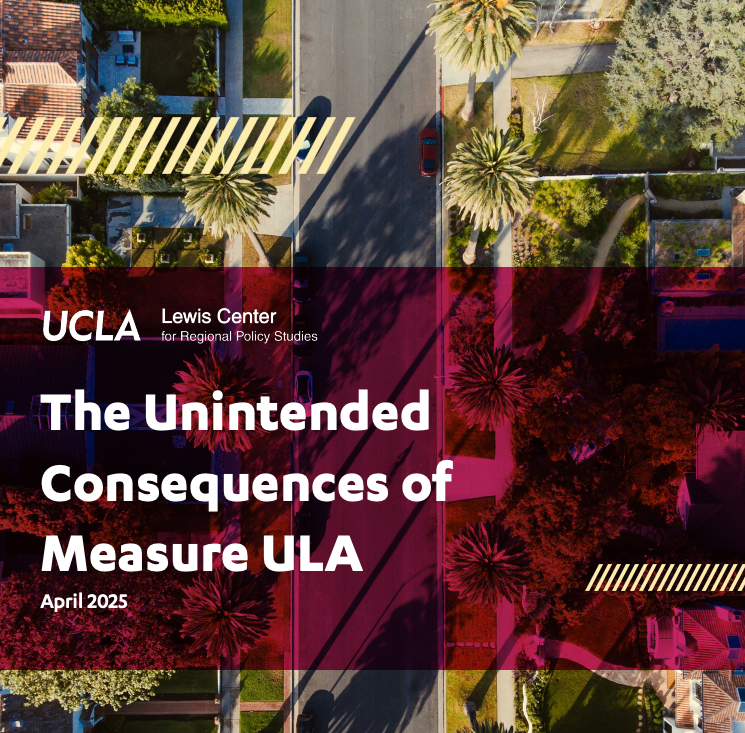Weekly Perl: A Commercial Real Estate News Recap

The Unintended Consequences of Measure ULA
We present evidence suggesting that Measure ULA has reduced higher-end real estate transactions in Los Angeles. Since Measure ULA was enacted, the odds of a Los Angeles property selling at a price above its tax threshold have fallen by as much as 50%. In raw terms, this sharp decline occurred across all types of properties, but our strongest evidence suggests it was particularly pronounced for non-single family transactions, which fell by 30-50%.

Total retail sales rise 1.4% in March as consumers rush to beat tariffs
Consumer spending was stronger than expected in March, fueled by surging auto-related sales as consumers looked to get ahead of potential tariff-related price increases.
Michaels looks to fill void left by Party City; expands balloons, party supplies
In the wake of the demise of Party City, Michaels is positioning itself as a one-stop destination for all things parties related.

How retailers are connecting with younger shoppers
From Sephora embracing its status as a Gen Alpha “playground” to Coach’s Gen Z-focused store concept, retailers are leaning in.

Rite Aid reportedly considering filing for bankruptcy — again
Rite Aid is reportedly looking at its options.
The retail pharmacy chain is considering filing for bankruptcy for the second time in less than two years or selling some (or all) of its operations after its recent financial restructuring failed to put the company on “a sustainable path,” reported the Wall Street Journal.

The 2025 SN Power List: meet the emerging power players in U.S. grocery
The $870 billion U.S. grocery industry is evolving faster than ever, driven by shifting consumer habits, technological advancements, and fierce competition. In our inaugural Power List, Supermarket News highlights the players, concepts, and tech shaping the future of food retail.

Ikea expanding in Texas with three smaller-format locations
Ikea is targeting the Lone Star State for expansion.
The Swedish home furnishings giant is building a smaller-format, or “city store,” at The Shops at Park Lane, in midtown Dallas. In addition to the Dallas location, Ikea has two other smaller-format stores in the works in Texas, including a 35,000-sq.-ft. outpost that will open this spring at San Mar Plaza in San Marcos, and one in Rockwell, which is scheduled to open in December.
Prada agrees to buy rival fashion house Versace in a deal valued at $1.4 billion
ROME (AP) — The Prada Group announced a deal Thursday to buy crosstown Milan fashion rival Versace from the U.S. luxury group Capri Holdings under terms that values one of the most recognizable names in Italian fashion at 1.25 billion euros ($1.4 billion).
Sam’s Club Ramps Up US Expansion With 15 New Stores a Year
IAmid economic uncertainty, Sam’s Club is betting big on value—expanding its store count and upgrading its entire US footprint.
Low Retail Availability Could Cushion Tariff Impacts on Real Estate
Near-record low availability could help retail absorb tariff pressures, with apparel most exposed to import duties.
Wawa, Kwik Trip plan expansions as convenience stores race to bulk up
Wawa eyes western Virginia for expansion, Kwik Trip aims for North Dakota
Retail Resilience: Five Years After the Pandemic Disruption
Five years after COVID lockdowns upended retail, brick-and-mortar has not only rebounded but regained its central role.













